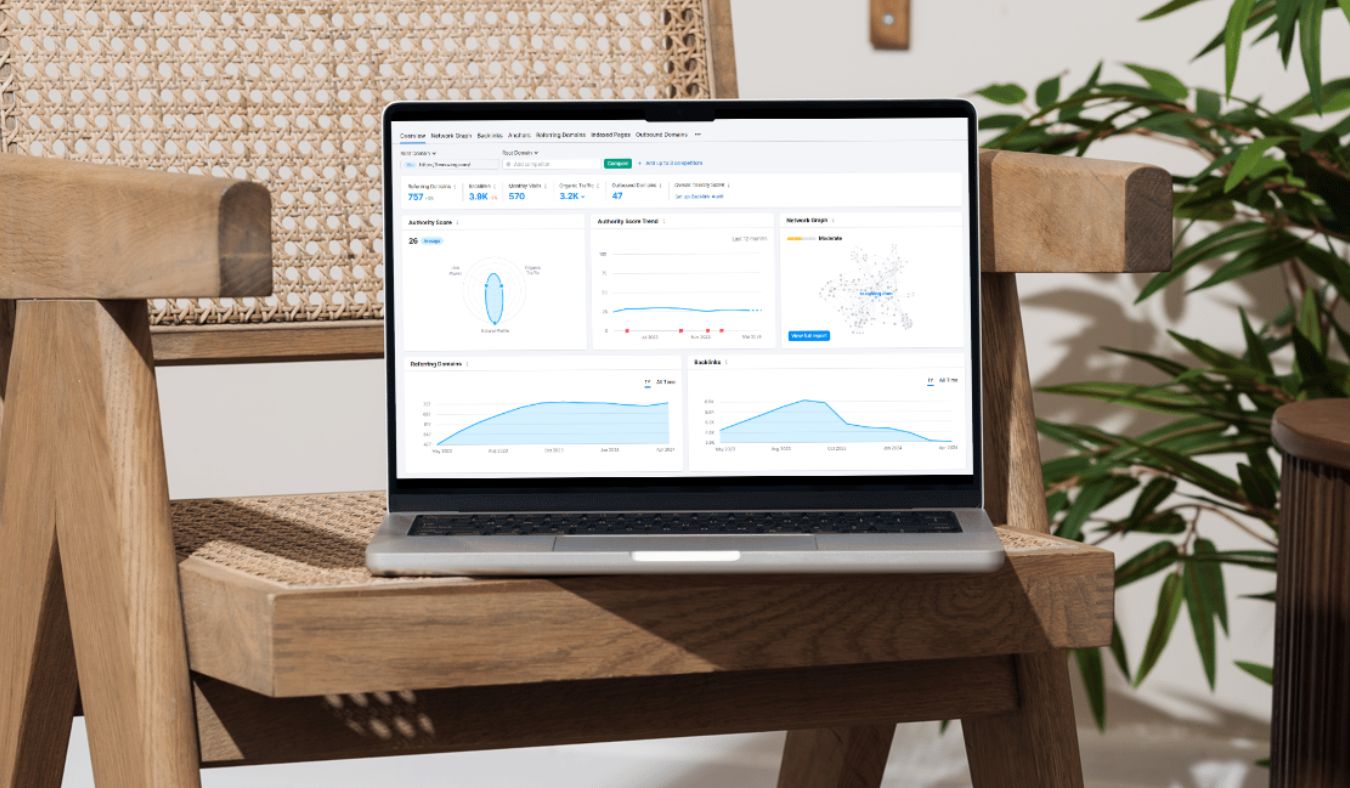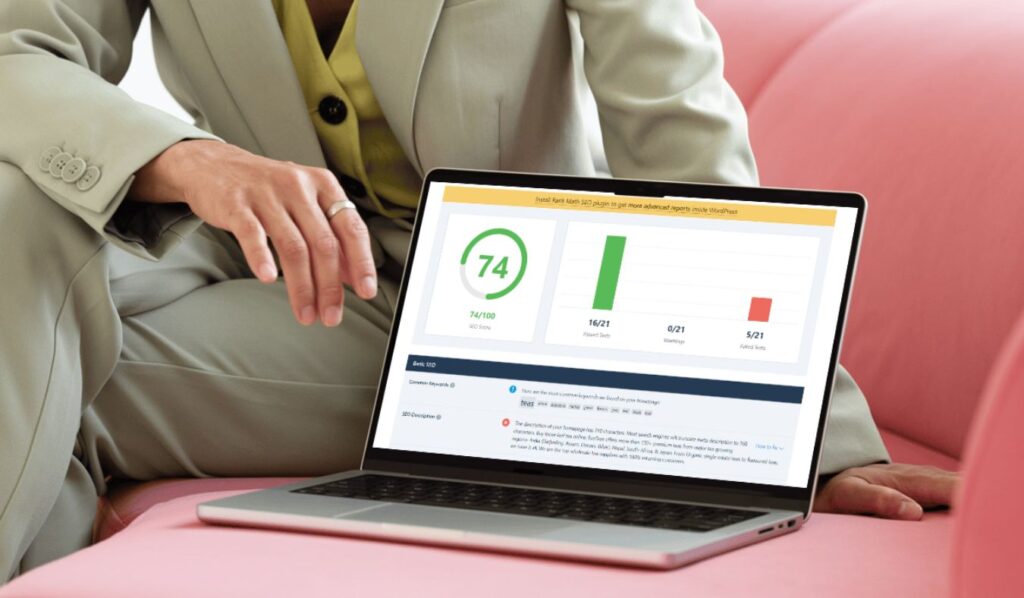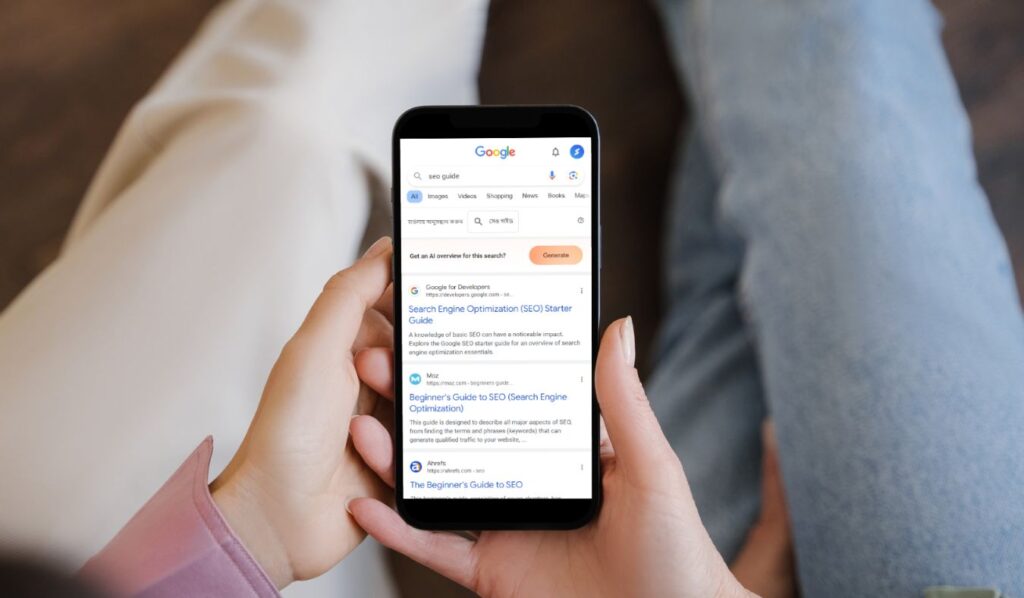What is Off-Page SEO?
While on-page SEO focuses on factors you control within your own website, off-page SEO is all about earning signals of trust and authority from around the web. Think of it like a popularity contest:
- Other Websites Linking to Yours: These backlinks are like “votes of confidence” in the eyes of search engines.
- Positive Brand Mentions: Even if a website doesn’t directly link to you, mentions of your business name build credibility
- Social Media Buzz: Shares and engagement can amplify your content, potentially leading to those valuable backlinks.
Why It Matters
- Domain Authority: This is a score that predicts how likely your website is to rank well. Off-page SEO is a major factor.
- Trustworthiness: Search engines want to show users reliable results. Links from reputable sources signal that your site fits the bill.
- The Full Package: Off-page SEO works in tandem with on-page optimization. Great content alone isn’t enough if no one knows about it!
Not Just About Backlinks
While earning high-quality backlinks is the cornerstone of off-page SEO, it’s not the whole picture. A holistic off-page strategy also includes:
- Social Engagement: Building a presence on the right platforms for your target audience.
- Brand Awareness: Getting your business name out there, even without links, builds recognition over time.
Ready to boost your website’s reputation online? Let’s dive into how it’s done…
1. The Power of Quality Backlinks
Think of backlinks as the internet’s version of word-of-mouth recommendations. Here’s why they play a pivotal role in your search rankings:
Search Engine Gold
- “Votes of Confidence”: When another website links to yours, it signals to Google that your content is useful and trustworthy. The more reputable the linking site, the bigger the vote.
- The Path to Discovery: Backlinks help search engines find new pages on your site. This is especially important for fresh content that may not have picked up natural links yet.
Niche Relevance Matters
- Industry Authority: A link from a respected blog in your niche carries more weight than a link from an unrelated, low-quality website.
- Topical Signals: Links from sites covering similar topics tell Google, “This website is about X,” boosting your own relevance for those keywords.
Anchor Text
- What it Is: Anchor text is the clickable words that form the link itself (like this: “[[invalid URL removed] best on-page SEO tips]”).
- Context Clues: Search engines look at anchor text to understand what the linked page is about.
- Keyword Bonus: If your target keyword is included naturally in the anchor text, it’s a positive signal, but don’t force it where it sounds awkward.
Important: Focus on earning high-quality backlinks from relevant sites. One great link is worth far more than dozens of spammy ones!
2. Ethical Backlink Building Strategies
When it comes to backlinks, quality trumps quantity every time. Here’s the thing: search engines are smart, and trying to cheat the system can backfire spectacularly.
The Spammy Shortcuts to Avoid
- Buying Links: Paying for links violates Google’s guidelines and can lead to penalties.
- Link Farms: Networks of low-quality sites created only to trade links. These are a red flag.
- Irrelevant Comment Spam: Leaving generic comments with links to your site on unrelated blogs won’t help your rankings, and annoys the blog owner.
White Hat Tactics That Work
The focus here is on earning links because you provide genuine value. These strategies take effort, but pay off in the long run:
- Guest Posting: Offer to write high-quality articles for relevant blogs in your industry in exchange for a link back to your own site.
- Resource Creation: Create in-depth guides, infographics, or tools so useful that other websites want to link to them organically.
- Strategic Partnerships: Can you collaborate with non-competing businesses in your niche to cross-promote and potentially earn a link in the process?
Broken Link Building
This tactic is sneaky, but brilliant:
- Find the Gaps: Use tools to find broken links (dead pages) on reputable websites in your niche.
- Offer a Solution: If you have a piece of content that would be a perfect replacement for the broken link, reach out to the site owner and suggest it.
- Win-Win: They fix a broken user experience, you potentially gain a valuable backlink.
Important Note: Backlink building takes time and consistency. Don’t get discouraged, focus on acquiring a few high-quality links each month!
3. Harnessing the Power of Social Media
The relationship between social media signals (likes, shares, etc.) and search engine rankings is a bit of a hot debate. Here’s the breakdown:
- Direct Ranking Factor? Probably Not: Google says they don’t consider a bunch of Facebook likes as a sign a page should rank higher.
- However, Indirect Benefits Are Real: Social media amplifies your content’s reach. More eyeballs on your amazing blog post can lead to…
- Natural Backlinks: If influential people share it, others in your niche might see it and link to it from their own sites.
- Brand Awareness: Increased visibility builds name recognition, which could lead to more people searching for you directly.
Platforms Matter: Be Strategic
Trying to be everywhere is a recipe for burnout. Instead, get laser-focused:
- Where’s Your Audience?: Are they on LinkedIn, Twitter, Pinterest? Focus your energy on the 1-2 platforms they use most.
- Quality Over Quantity: It’s better to have a smaller, highly engaged audience than thousands of followers who don’t interact.
It’s About Building Relationships
Social media is not just about blasting out links to your own stuff. Here’s how to use it to spark those off-page SEO benefits:
- Engage with Influencers: Build genuine connections with relevant figures in your niche. This can lead to them sharing your content organically.
- Join Communities: Participate in Facebook groups, industry subreddits, etc. Be a helpful resource, and mentions of your brand (and links!) might follow.
- Offer Value FIRST: Promote others’ content, answer questions… this fosters goodwill, making people more likely to reciprocate.
Let me know if you’d like examples tailored to specific industries to illustrate how this works!
4. Beyond Backlinks: Other Off-Page Factors
Backlinks are crucial, but a strong off-page SEO strategy encompasses several other elements:
Local SEO Power
If your business serves a specific geographic area, these tactics are essential:
- Citations: List your business name, address, and phone number (NAP) in online directories like Yelp, Yellow Pages (yes, they still exist!), and niche directories relevant to your industry.
- Google My Business: Optimize your listing, actively manage reviews, and use their ‘posts’ feature to share updates.
- Location-Specific Content: Can you create a resource guide for your city, or partner with other local businesses for cross-promotion?
Brand Mentions = Trust
Even if a website doesn’t directly link to yours, mentions of your business name build credibility and signal to search engines that you’re a real entity.
- Monitoring Tools: Google Alerts is a free and simple way to track mentions of your brand name (and even keywords!) online.
- Encourage Buzz: Great customer service leads to word-of-mouth recommendations, even online, which can lead to mentions.
PR Wins
Landing media coverage can lead to powerful off-page benefits:
- High-Authority Backlinks: Reputable news sites and industry publications often include links to the businesses they feature.
- Brand Visibility Boost: Even if a feature doesn’t include a link, being seen in trusted publications raises your profile within your niche.
- “Social Proof”: Features lend third-party credibility, which can influence potential customers.
Important Note: Off-page SEO is a marathon, not a sprint. Focus on consistent effort across a variety of tactics to see the best long-term results.
5. Your Off-Page SEO Checklist
Use this checklist regularly to track your progress and identify new off-page optimization opportunities.
Backlink Building
- Conduct a Backlink Audit: Analyze your existing backlinks (tools like Ahrefs or Semrush can help). Are they high-quality and relevant?
- Identify Guest Post Targets: Research blogs in your niche that accept guest contributions.
- Create “Link-Worthy” Resources: What unique guides or tools could you offer that others would naturally want to reference?
- Broken Link Building Time: Use a tool like DeadLinkChecker.com to find opportunities in your niche.
Social Media Savvy
- Choose 1-2 Primary Platforms: Where does your ideal customer spend their time online?
- Set Engagement Goals: Instead of just vanity metrics, aim for a target number of comments, conversations, or shares per week.
- Build an Influencer List: Who are the respected voices in your industry that you can start connecting with?
Beyond Backlinks
- Claim & Optimize Your Google My Business: (If you have a local business)
- Get Listed in Relevant Directories: Start with major ones, then focus on industry-specific ones.
- Set Up Google Alerts: Track mentions of your business name and important keywords in your niche.
Pro Tip: Off-page SEO is ongoing. Choose 2-3 items from this checklist to tackle each month for sustainable progress!
Getting Started
Ready to elevate your off-page SEO game? Here’s how we can help:
- Free Backlink Analysis: Curious about the quality of your existing backlinks? We can provide a quick, free analysis, and identify opportunities for improvement.
- Need a Custom Off-Page Plan?: Off-page SEO is complex. Let’s chat! Brand Sewa offer Free consultations to create a personalized strategy tailored to your business goals and niche.
Let’s work together to boost your website’s authority and get you those higher rankings!



